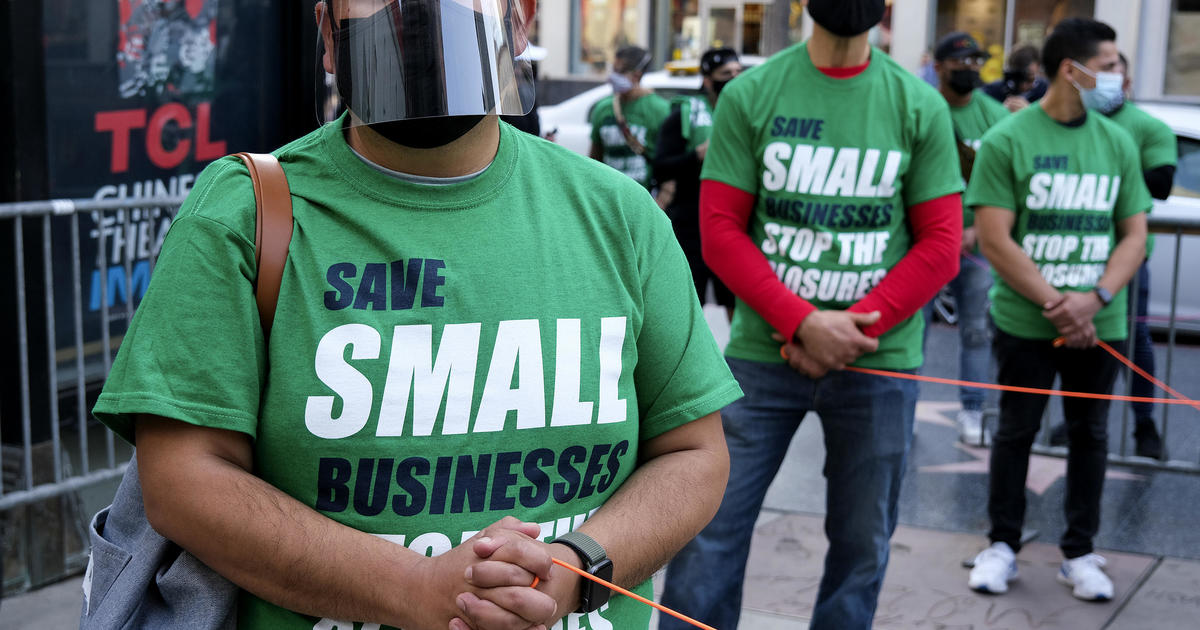
Biden stimulus plan offers less help for small businesses
CBSN
The Biden administration acknowledges that small businesses continue to face an "immediate crisis" because of the economic fallout from the coronavirus. Yet the American Rescue Plan — the $1.9 trillion emergency relief package that President Joe Biden helped push through Congress with Democratic lawmakers — provides far less support to small businesses than previous rounds of pandemic relief.
Direct aid to small businesses accounts for $50 billion of the $1.9 trillion plan, or just 2%. That's far lower than the two previous coronavirus relief bills that lawmakers have passed. For example, the Coronavirus Aid, Relief and Economic Security (CARES) Act in March 2020 provided nearly $400 billion — or nearly 20% of the roughly $2 trillion measure — in forgivable small business loans and grants. "There are things that will help small businesses like everyone else, but the direct benefits in the most recent stimulus bill for small businesses is pretty small," said Richard Prisinzano, director of policy analysis at the Penn Wharton Budget Model, a nonpartisan group at the Wharton School of the University of Pennsylvania.More Related News
